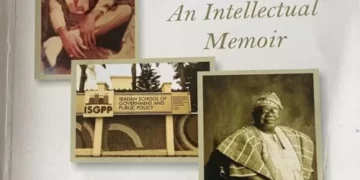As the world marks 2024 World Theatre Day for Children and Young People, on March 20, some would ask, “why talk about the future of theatre and how does it matter beside the tragedy and injustice that surround us?”
ASSITEJ International and theatre practitioners who create performances for, and with children and young adults, believe that theatre is an act of hope for the future.
An annual event, theatre practitioners and adults with children in their lives are encouraged to ‘take a child to the theatre’. The idea behind the theme is to spread the world that access to arts, culture and performances are rights every child is entitled to.
While it may seem irrelevant to bring theatre or take to the theatre children who are victims of war, conflict, domestic abuse poverty, displacement, homelessness, terror or violence, theatre practitioners have done and are still doing more work for and with young people of such background.
In her global speech to mark the day, ASSITEJ International President, Sue Giles states, “I believe that in making theatre and performance for and with children and young people, we are engaged in an act of hope. Our art form offers interpretation and direct connection with themes and situations that confront children in their everyday lives and that can speak to them in a voice that listens and understands. Their reflection on their own situation is helped because of what we can open up in safe ways, offering truth alongside possibility and imagining a future or a path that can spark ideas for young people about what might be different. The act of creation is hopeful.”
Giles challenged artistes and adults working to provide access to arts, culture and creativity to children and young people – to ask the pertinent questions.
“Without noticing and validating their (children and young people) expertise in play and the realms of imagination, without the stories and the possibility of escape, fun and joy, without the exploration of kindness and humanity that comes with this audience, can we understand ourselves? Without the development of real agency and participation of children and young people can we keep our won hold on hope?”
As the world marks 2024 World Theatre Day for Children and Young People, on March 20, some would ask, “why talk about the future of theatre and how does it matter beside the tragedy and injustice that surround us?”
ASSITEJ International and theatre practitioners who create performances for, and with children and young adults, believe that theatre is an act of hope for the future.
An annual event, theatre practitioners and adults with children in their lives are encouraged to ‘take a child to the theatre’. The idea behind the theme is to spread the world that access to arts, culture and performances are rights every child is entitled to.
While it may seem irrelevant to bring theatre or take to the theatre children who are victims of war, conflict, domestic abuse poverty, displacement, homelessness, terror or violence, theatre practitioners have done and are still doing more work for and with young people of such background.
In her global speech to mark the day, ASSITEJ International President, Sue Giles states, “I believe that in making theatre and performance for and with children and young people, we are engaged in an act of hope. Our art form offers interpretation and direct connection with themes and situations that confront children in their everyday lives and that can speak to them in a voice that listens and understands. Their reflection on their own situation is helped because of what we can open up in safe ways, offering truth alongside possibility and imagining a future or a path that can spark ideas for young people about what might be different. The act of creation is hopeful.”
Giles challenged artistes and adults working to provide access to arts, culture and creativity to children and young people – to ask the pertinent questions.
“Without noticing and validating their (children and young people) expertise in play and the realms of imagination, without the stories and the possibility of escape, fun and joy, without the exploration of kindness and humanity that comes with this audience, can we understand ourselves? Without the development of real agency and participation of children and young people can we keep our won hold on hope?”





